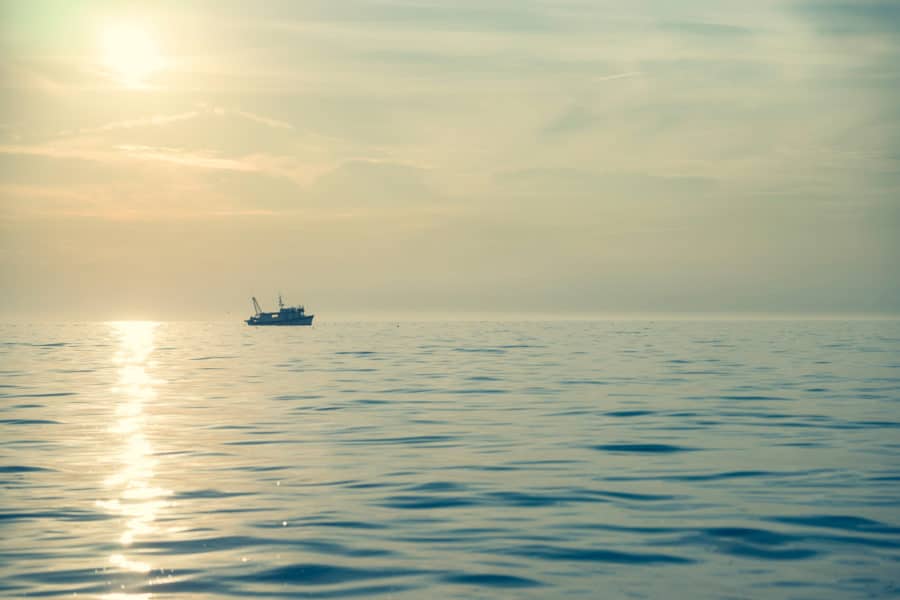Innovate for sustainable fish farming
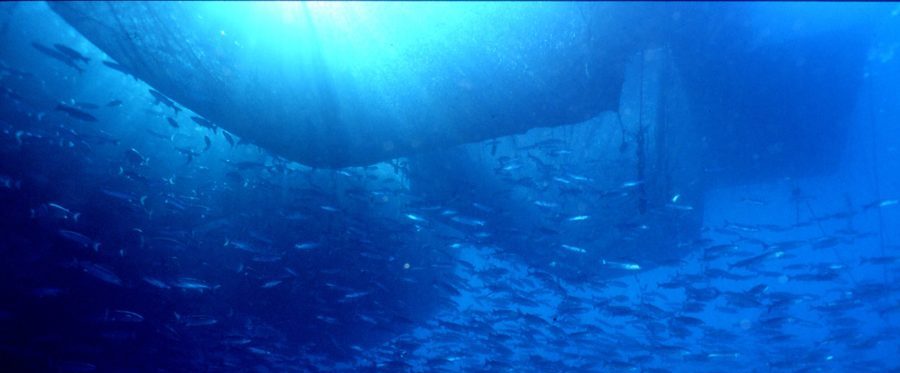
Fish feed performance

Our formulators work on the different drivers in order to improve the technical and the nutritional performance of our products on a daily basis. The principal themes that are taken into account when creating a feed are :
- The replacement of raw materials that have a marine origin (sustainability of the sector) ;
- Covering the nutritional requirements of the different species and their physiological stages (fry, growth, reproduction) ;
- Seeking appetising products;
- The need for natural products for disease prevention;
- Respecting the environment (limiting nitrogen and phosphorus emissions).
Flesh gustatory quality
The conservation and even the improvement of the organoleptic and dietary characteristics of produce is a major production challenge for fish farmers. The choice of ingredients in the different formulations can have a role in fish eating quality. The testing programs that can potentially modify the consumer’s organoleptic perception are the subject of evaluations carried out by expert juries with training concerning clearly identified sensorial criteria.
Le Gouessant Aquaculture is regularly contacted, and carries out work on diverse themes including the conservation of flesh quality after slaughter, adapting the lipid profile in feeds, the impact of the formulation on the texture of fish fillets, etc.
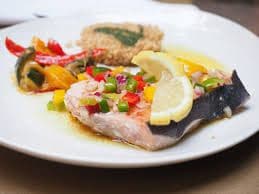
Health: using foods to reinforce the fish immune system
The research for feed solutions with the aim of improving stock health is a priority in order to expand sustainable fish farming.
Le Gouessant Aquaculture is developing ranges of feeds created specifically to prevent disease outburst. These health-nutrition products are used on our farms and backed up with an offer of technical support. New tests focusing on additives, natural extracts and even new formulations are carried out in the field with the aim of reducing the use of medication.
Enteritis : NEO E range
Known since 1992, enteritis is a summer bacterial disease that is specific to rainbow trout, and that can lead to the destruction of 70% of the stock in one summer. This disease is triggered when overfeeding occurs during periods with high temperatures (15-16°C in the water).
Le Gouessant has developed a range that is specifically designed to solve this problem. The NEO-E and the NEO-E –transition will be your two allies until the autumn.
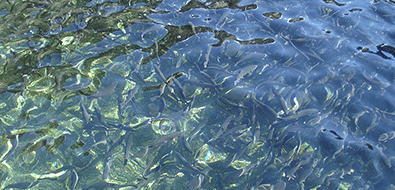
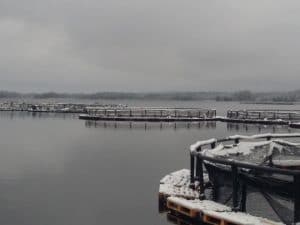
Winter disease : Sea Bream Winter range
In order to combat the problem of « Winter Disease » in sea bream, our teams have developed a specialist feed: the Sea Bream Winter, which has been adapted to suit feeding during the winter period.
Other pathologies
With the aim of reducing medicated feeds, we spend every day trying to develop alternative solutions.
The main objective is to offer our fish farmers combinations of feeds (special formulations, additives or extracts) that prepare and help stock to get through difficult periods. Don’t hesitate to tell us about any recurring problems that you may have.
A precise solution for every type of farm
Our technical skill and our flexibility enables us to adapt the formulation and the presentation of each feed to suit all feed distribution systems, or all farm types.
Furthermore, our ability to support you in more than 48 countries worldwide, has led us to develop the formulations that are suitable for the different seasons, and the different environments where production takes place. Committed to your search for performance, we offer the most technically advanced formulas that are suitable for conditions where the water temperature or flow are ideal for the production of biomass.
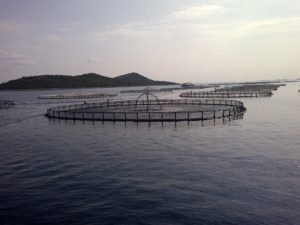
RAS : Research for feed performance in closed circuit systems
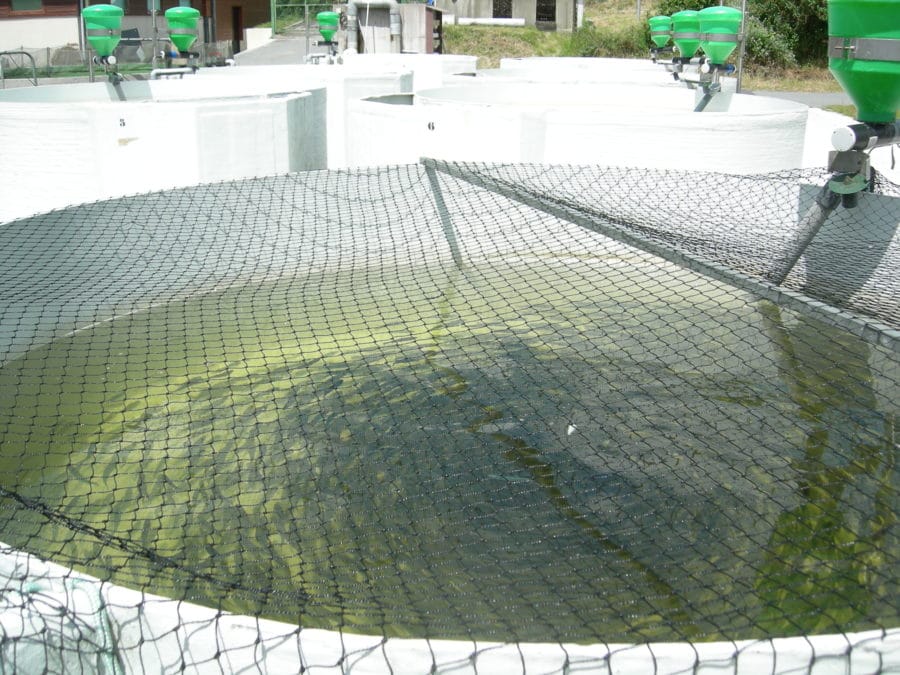
Le Gouessant Aquaculture has been a leader in research programmes for feeds suitable for closed circuit farms : Recirculation Aquaculture System.
An important research programme was carried out in 2004 in partnership with IFREMER. The aim of the programme was to find additives that, when added to the feed, improved the cohesion of faeces particles excreted by the fish, therefore optimising the decantation and filtration output. Fifteen different additives were tested on turbot and sea bass, either alone, or as a combination (in order to test the synergy effect) and with different incorporation rates (more than 50 combinations in total).
This work has enabled us to select the additives that we offer today in the « Optima » supplement. Since the first trial, development has continued with our partner farms, and also with INRA’s experimental structure for closed circuit farming.
Today, we want to progress further, and are looking at new avenues in order to find the best economic compromise (adaptation to supplements, feed formulation), the reduction of phosphorus excreted and the improvement of the quality of fish.
Alternatives to proteins with marine origins
Human consumption of products of a marine origin, either from fishing or fish farming, in human food is booming. This growth is mainly linked to the development of fish farming (the quantities of fish that have been caught have been stagnating for over 30 years). The forecasts concerning world fish farming production anticipate a continuous progression over the next 15 years, and it will be imperative that feed formulations are modified.
The feeds used in fish farming (salmonids, shrimps and other marine species in particular) are made up, in part, of products that have been obtained from industrial fishing (oils and fish meal). The increase in demand for these raw materials, associated with a stagnating offer, is leading to price increases which are harmful to the sector’s sustainability.
The alternatives to these fish meals and fish oils are therefore a priority in order to continue the sustainable development of fish farming.
Le Gouessant has been studying the subject for more than the last 20 years:
- By participating in research programmes organised by research organisations such as INRA and IFREMER : the AQUAMAKI program in 2002, VEGAQUA in 2009, AQUAMAX in 2010
- By creating feeds for comparative trials on farms
- As Project holder for the FUI program (Fond Unique Interministériel) NINAQUA. The new program, launched in 2017 over a 4 period with the aim of evaluating the different performances such as zoo-technical, environmental, health and organoleptic feed formulas without fish meal or fish oil. The innovative alternative raw materials selected are insect meal, microorganisms (yeasts), algae and land-based animal proteins.
High-level monitoring has equally been put into place by our different departments (purchasing, formulation, analysis laboratory, technology) in order to select, evaluate and test the innovative plant-based ingredients, but equally to develop marine byproducts sourcing from the food industry.
The use of sustainable meals and oils makes up more than 50% of our purchased supplies of marine-based products. Today this initiative is possible thanks to the implication of the different fish sectors and of the transformation sector (improvement of the collecting circuits and the transformation of byproducts into meals and oils), but also due to the checks carried out on reception, of the quality of the ingredients, and also the evaluation on farms of special formulas.
